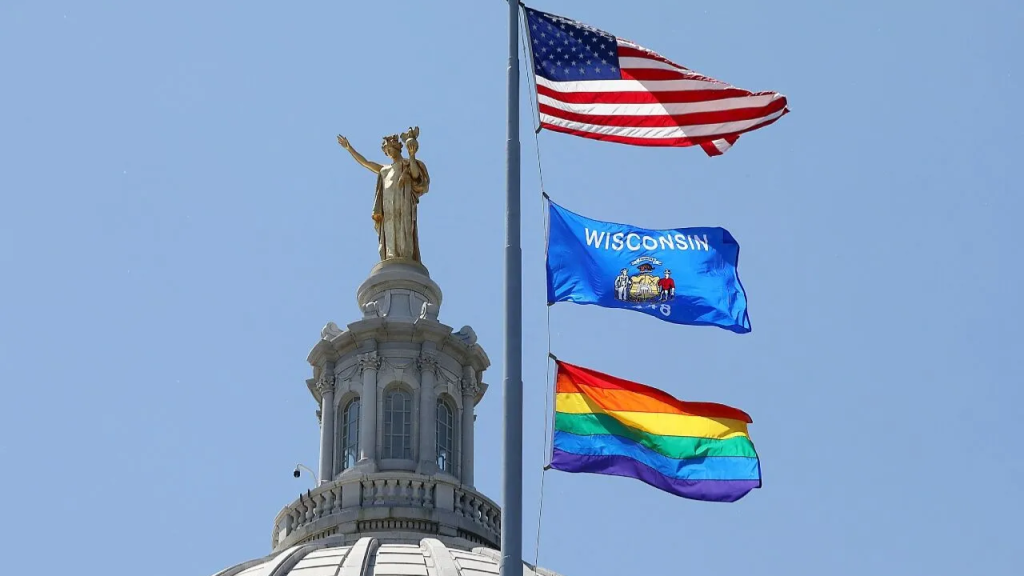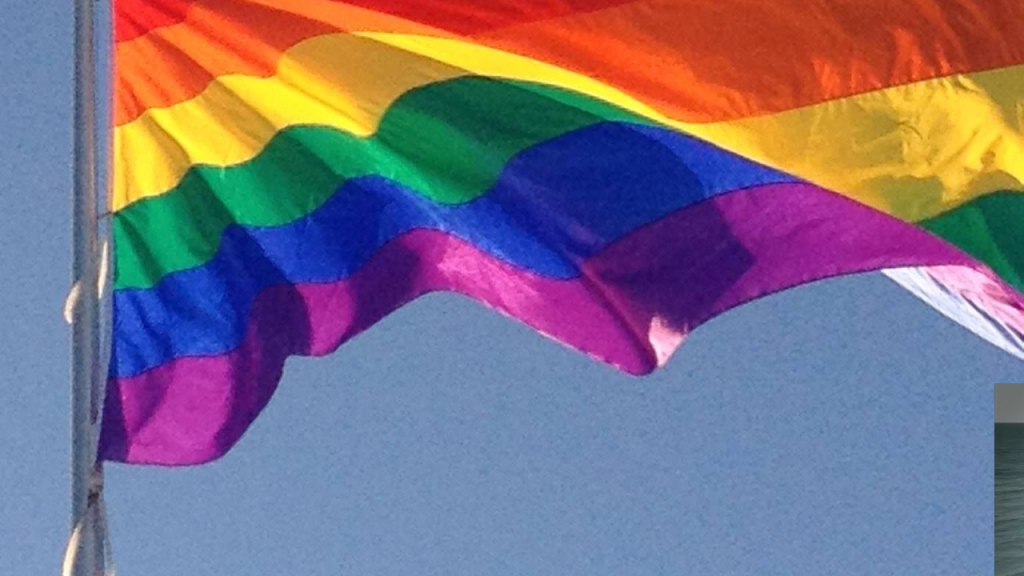
After proudly flying the Pride flag for several consecutive years during Pride Month, the Wisconsin Historical Society (WHS) has announced it will no longer raise the flag at its headquarters in Madison — a decision that has sparked widespread disappointment among LGBTQ+ advocates and community members.
The change marks a sharp departure from a tradition that began in 2019, when the WHS first hoisted the rainbow flag in honor of June’s Pride Month. This move was seen as a symbol of support and recognition for Wisconsin’s LGBTQ+ residents. However, in 2025, the Society has chosen not to continue the practice, stating that the decision was made to preserve its identity as a nonpartisan agency.
‘Not an Act of Advocacy,Says WHS
Colleen Lies, a spokesperson for the Wisconsin Historical Society, said the organization wants to focus solely on its historical mission and avoid actions that could be perceived as political or advocacy-driven.
“As a nonpartisan agency, the Society does not participate in advocacy outside of that mission,” Lies explained in a statement. “With that in mind, we have chosen not to raise any flags on our agency’s flagpoles that can be perceived as an act of advocacy.”
Though the Society acknowledged that it had flown the Pride flag in past years, the statement clarified that the organization is reevaluating how it presents symbols on government property.
LGBTQ+ Advocates Respond with Concern
The WHS decision has been met with frustration and sadness by members of the LGBTQ+ community and allies who say the Pride flag is a symbol of visibility and inclusion—not partisanship.
Christopher Peguero, a queer advocate from Fitchburg, Wisconsin, voiced his disappointment, noting that the flag has never been about politics.
“The Pride flag is not meant to be a political statement,” Peguero said. “It’s a symbol of inclusion. When you remove that visibility, it signals exclusion to a lot of people.”
Peguero, along with others in the community, believes the flag is essential in sending a message that LGBTQ+ people are valued and welcome in all spaces, including public institutions like the Historical Society.

Capitol Still Raising the Flag
While WHS has opted out, Wisconsin Governor Tony Evers is continuing his commitment to visibility. On June 1, 2025, the Progress Pride Flag was raised over the Wisconsin State Capitol for the seventh year in a row.
“When the Pride Flag flies above the People’s House, it sends a clear and unequivocal message that Wisconsin recognizes and celebrates LGBTQ+ Wisconsinites and Americans,” Evers said during the flag-raising ceremony.
The move by Governor Evers highlights a contrast in how different arms of the state government approach Pride Month and LGBTQ+ representation. The governor’s office has consistently used the symbolic act of raising the Pride flag to express support and promote inclusivity.
More information about the Office of Governor Tony Evers can be found on wisconsin.gov.
National Context: Pride Flag Restrictions Rising
The WHS decision is also being viewed through the lens of a broader national conversation about Pride flag displays on government property. Across the United States, several states have introduced or passed legislation restricting non-governmental flags—including the Pride flag—on public buildings.
According to a recent report by The Washington Post, more than a dozen states have considered flag restriction bills in the last year, some specifically targeting LGBTQ+ symbols.
Supporters of such measures argue that government buildings should maintain neutrality. Opponents argue that such bans silence communities and erase their visibility, especially during culturally significant times like Pride Month.
For official information on LGBTQ+ inclusion and civil rights history, you can visit the U.S. National Archives at archives.gov.
WHS Still Committed to LGBTQ+ History
Despite not flying the Pride flag this year, the Wisconsin Historical Society emphasized its ongoing efforts to document and celebrate LGBTQ+ history in other meaningful ways.
The Society hosts LGBTQ+ history walking tours and plans to conduct a genealogy workshop this summer that will focus on tracing queer ancestry — a unique and often underrepresented area of genealogical research.
“These programs are part of our broader mission to ensure that Wisconsin’s diverse communities are represented in the historical record,” Lies said.
The Society also maintains collections and exhibits that include LGBTQ+ narratives, reflecting its long-standing commitment to inclusive storytelling. However, critics argue that symbolic acts like flying the Pride flag play an important role in making marginalized communities feel seen, particularly at a time when hate crimes and discrimination remain concerns across the nation.
As the Pride flag continues to wave over the Wisconsin State Capitol, the conversation around its absence at other public institutions like the Wisconsin Historical Society is far from over.
